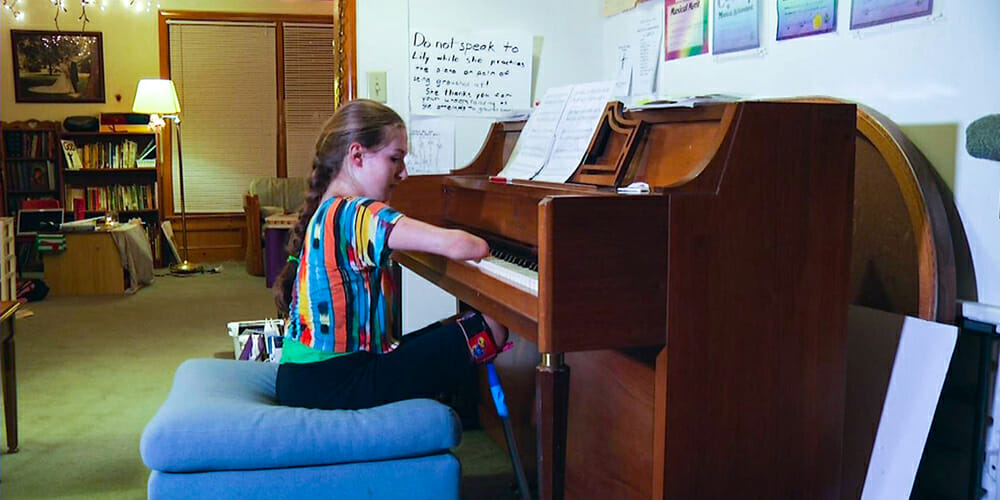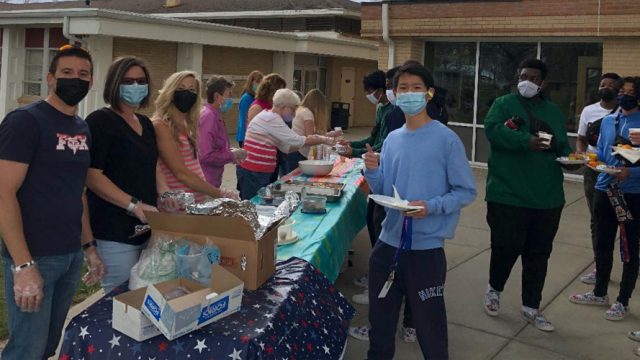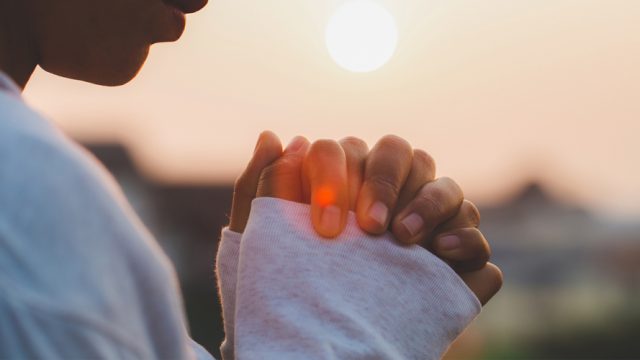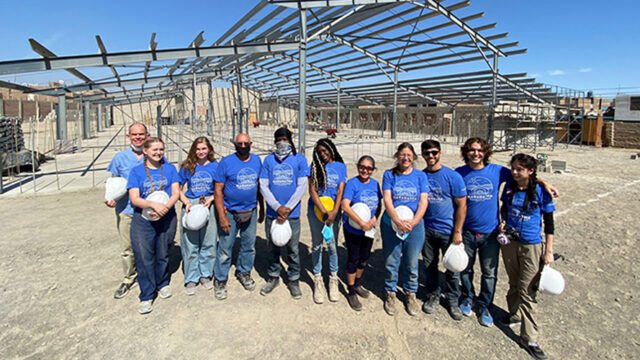Meet Heidi Burke, as the Adventist Church celebrates “Special Needs Ministries Sabbath.”

Fourteen-year-old Heidi Burke doesn’t let her limb difference keep her from excelling at anything she sets her mind to accomplish.
Burke, among the top students in her class at Midland Adventist Academy in Shawnee Mission, Kansas, United States, is an avid reader and a talented musician. She plays trumpet in the band and the piano at home.
“Music has always been a part of my life,” Burke says. “It’s almost like a friend, something that’s always been there.”
She’s also on the gymnastics team, writes poetry, is learning to drive, and is currently studying for her learner’s permit.
Burke is otherwise your average teenager. Every night she eats dinner with her parents, Byron and Dawn, talking about the day’s events. They are proud of her.
“She’s smart, she’s determined,” Dawn says. “She doesn’t see herself as different than anybody else.”
Burke’s close friends and family rarely notice her arms and legs. She is a quadrilateral amputee, born with no hands and feet. But her parents have never seen it hold her back.
“Heidi doesn’t limit herself at all,” Dawn says. “So why should anyone else?”
She has had to learn how to do everyday tasks differently but can do anything she sets her mind to.
Burke can hold a pencil, type, and even play the piano using her arms. Her cursive handwriting is neat and pretty too.
“It’s not your hands that write, it’s your brain that does it,” she explains.
The trumpet’s three valves are not a problem, though she says the high notes are “kind of hard.” She can also cartwheel and flip with the best of her gymnastics team.
Growing up, Burke taught herself to solve everyday problems just like anyone else. She is used to people seeming surprised by this.
“It’s like, ‘You don’t have feet! You don’t have hands,’” she says theatrically, referring to the way strangers express shock at her ability. “I’m like, ‘Well, you don’t need them.’”
Burke is a good student — active and musical. She doesn’t ask for help very often and doesn’t need many special accommodations. Engineering students at the University of Kansas recently made her a special lever to help her reach the pedals on the piano. She also wears custom-made shoes, but that’s about it.
Burke does not define herself by her limb difference. Like most teens, she only wants to define herself. She hopes her story can be a lesson to others.
“If you see somebody who looks different and who isn’t doing things your way, you’re like, ‘That’s an amazing person,’“ she says. “But they’re just living life. Treat people just like they’re normal human beings, because they probably are.”
This story posted on the Mid-America Union Conference news site was based on a report on KCTV 5 News in Fairway, Kansas, United States.







